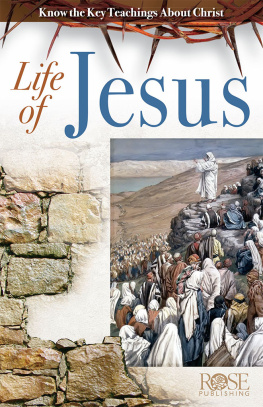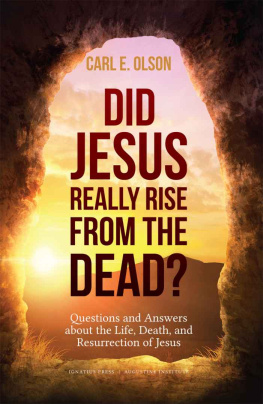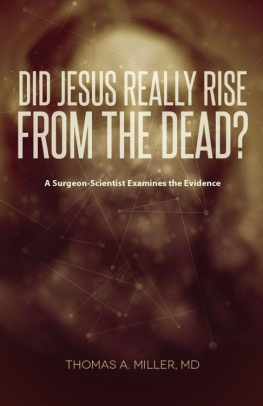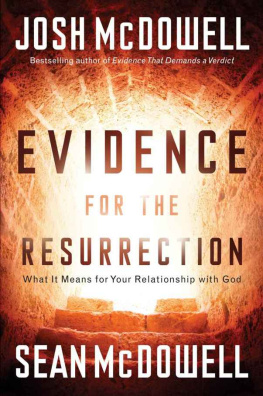
Evidence for the Resurrection
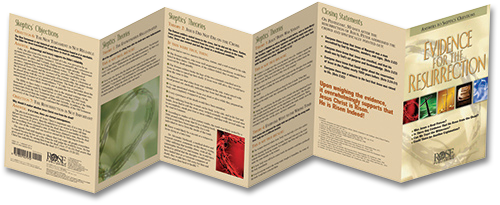
THIS HANDY E BOOK:
- An easy-to-understand explanation in just 30 minutes.
- Explains and answers 11 objections that skeptics have about Jesus resurrection.
- Presents historical, archaeological, and cultural proofs.
Skeptics Objections
WHAT IS THE RESURRECTION?
The Bible teaches that Jesus is the Son of God, and that he was crucified and died for the forgiveness of sin, was resurrected from the dead, and lives today.
Around AD 30, Jesus of Nazareth was crucified during the reign of Roman Emperor Tiberius (AD 14-37), in the province of Judea. After dying on the cross, he was buried in the tomb of a prominent Jewish leader named Joseph of Arimathea.

Early on Sunday after his crucifixion, several women who had followed Jesus, including Mary Magdalene, Joanna, Mary the mother of James, and Salome, went to Jesus tomb intending to anoint the body with spices and ointments. The women wondered who would roll away the stone for them. Suddenly, there was an earthquake and an angel appeared. The women found the tomb empty. They feared something had happened to the body of Jesus. An angel of the Lord assured the women that Jesus was alive and had risen from the dead.
Leaving the tomb, the women went to tell Jesus disciples what had happened. Before they reached the disciples, Jesus himself appeared to the women. Over the next few weeks Jesus appeared to more than five hundred others proving that he had risen from the dead, and verifying all that he had claimed.
Over the centuries, skeptics have developed several objections to the resurrection of Jesus and have proposed several alternative theories about what actually happened to the body of Jesus Christ. Many believe that Jesus resurrection is too difficult to prove beyond a reasonable doubt. Here is evidence to answer those doubts.
OBJECTION 1: JESUS WAS A MYTHOLOGICAL FIGURE
Did Jesus of Nazareth even exist? If he did exist, what proof is there that he was crucified?
ANSWER: Evidence for Jesus Christ comes from many written documents from the first century.
- 39 ancient sources (in addition to the New Testament), such as Pliny, Josephus, and the Talmud, refer to the life of Christ, his teachings, crucifixion, and/or resurrection.

- An early creed or statement of faith found in the Bible was probably written from 8 to 20 years after the death of Jesus. The creed states that Jesus was buried, and that he rose again the third day according to the scriptures. (1 Corinthians 15:3-8) Most critical historians agree that documents take more than 20 years to become corrupted by mythological development.
- Several witnesses report appearances of Christ after the resurrection. These reports are recorded in the Gospels, the apostle Pauls letters, and other letters in the New Testament. These accounts were dated from 25 to 60 years after the death of Jesus. If Jesus did not exist, or if the information within these documents were false or corrupt, those who knew Jesus, either friend or enemy, would have objected to the misinformation.
- Peter wrote that the disciples did not follow invented stories when they told people about the power of Jesus, but that they were eyewitnesses to Jesus and his majesty. (2 Peter 1:16)
OBJECTION 2: JESUS WAS JUST A MAN
Even if Jesus did exist, he wasnt everything his followers claimed he was. If anything, he was a compassionate person and a charismatic leader. He was a great prophet and teacher, but he was not God.
ANSWER: Evidence supports that Jesus was all he claimed to be.
Jesus claimed to be the Messiah (John 4:16-26) who came from heaven. (John 8:21-30) Jesus also claimed to be eternal (John 8:52-59), equal to God (John 10:24-39), and the savior of the world who would die for the forgiveness of sin and would rise from the dead on the third day. (Matthew 26:26-32)
Jesus performed many miracles and signs that supported his claims. Jesus performed miracles of healing (Matthew 8:2-4; Mark.7:31-37), miracles of nature (John 2:1-11; Matthew 8:23-27), and miracles of restoring life. (Matthew 9:18-26; John 11:1-44) The miracles of Jesus were performed in public and could not be contested by Jesus enemies. On the day of Pentecost, Peter said that Jesus proved his power and authority by performing miracles, wonders, and signs. (Acts 2:22)
Jesus is either what he claimed, a madman, or worse. Knowing the things that Jesus claimed and did, most people would agree he was a moral and upright teacher. In addition, biblical scholars suggest that one cannot say Jesus was a great teacher, but not God. C.S. Lewis writes in Mere Christianity, I am trying here to prevent anyone saying the really foolish thing that people often say about Him [Jesus]: Im ready to accept Jesus as a great moral teacher, but I dont accept His claim to be God. That is the one thing we must not say. A man who said the sort of things Jesus said would not be a great moral teacher. He would either be a lunaticon a level with the man who says he is a poached eggor else he would be the Devil of Hell. You must make your choice. Either this man was, and is, the Son of God, or else a madman or something worse.
Jesus fulfilled many ancient prophecies. More than one hundred prophecies found in the Old Testament were fulfilled in Jesus Christ. Statistician Peter Stoner reports that the probability of just eight of these prophecies about one person being fulfilled by chance is 1 in 100,000,000,000,000,000. Consider the chances of one person from the line of King David, being born in Bethlehem, entering Jerusalem on a donkey, being betrayed for 30 pieces of silver, crucified, buried in a rich mans tomb, and rising from the dead. Out of all the prophecies fulfilled in Jesus, more than fifty were fulfilled by his death and resurrection.
Jesus predicted he would suffer, die, and rise again. Months before his crucifixion, Jesus told his disciples that he [Jesus] must suffer many things and be rejected by the elders, chief priests and teachers, and that he must be killed and after three days rise again. (Mark 8:31)
OBJECTION 3: JESUS FOLLOWERS MADE IT ALL UP
After Jesus died, his followers invented a plan to deceive the entire world into believing that Jesus was the promised Messiah, the fulfillment of Scripture, and the Son of God who rose from the dead.
ANSWER: Evidence suggests that such a deception is highly unlikely.
People will not knowingly die for a lie. The disciples were not fearless liars who wanted to fool the world. After the crucifixion, the disciples fled in fear for their lives. However, once they saw, touched, and spoke with the risen Lord, their lives were transformed. Filled with the Holy Spirit, the disciples left their former jobs and entered a life of telling about Jesus, and as a result endured hunger, persecution, abandonment, imprisonment, suffering, torture, and death. Former journalist Lee Strobel writes, People will die for their religious beliefs if they sincerely believe theyre true, but people wont die for their religious beliefs if they know their beliefs are false.
Next page








